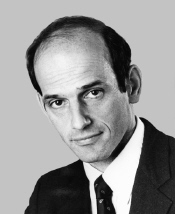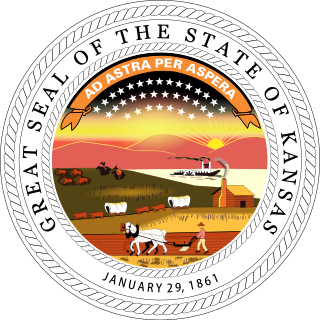
The Maine gubernatorial election of 2006 took place on November 7, 2006. Incumbent Democrat John Baldacci was re-elected to his second term. This was the last time a Democrat won statewide office in Maine until 2018, when Janet Mills won the gubernatorial election over Republican Shawn Moody.

The 2006 South Carolina gubernatorial election took place on November 7, 2006. Incumbent Republican Governor Mark Sanford won re-election against Democratic State Senator Tommy Moore, becoming only the third Republican governor in South Carolina to win a second term. Sanford started the campaign with a double-digit edge over Moore and he maintained that lead to election day. During the course of the campaign, Sanford's approval rating averaged in the mid fifties. In Sanford's re-election victory, he also garnered 22% of the African American vote, which was considered very high for a Republican statewide candidate.

United States gubernatorial elections were held Tuesday, November 4, 2008 in 11 states and two territories. Prior to the election, eight of the total seats were held by Democrats and five by Republicans. Two governors were prohibited by term limits from seeking re-election in 2008.

United States gubernatorial elections were held on November 2, 2010 in 37 states and two territories. As in most midterm elections, the party controlling the White House lost ground. Democrats did take five governorships from the Republicans, and Republicans took 11 governorships from the Democrats. An independent won one governorship previously held by a Republican. A Republican won one governorship previously held by an independent. Republicans held a majority of governorships for the first time since before the 2006 elections. One state, Louisiana, had no election for governor, but did feature a special election for lieutenant governor.

The 2008 United States Senate election in Kansas was held on November 4, 2008. Incumbent Republican U.S. Senator Pat Roberts won re-election to a third term.

The 2004 United States Senate election in Kansas was held November 2, 2004. Incumbent Republican U.S. Senator Sam Brownback won re-election to a second term.

The 2010 Illinois gubernatorial election took place on November 2, 2010. Incumbent Democratic Governor Pat Quinn sought and was elected to a full term in office. Quinn was elected as the Democratic nominee, the Illinois Green Party nominee was attorney and 2006 nominee Rich Whitney, the Republican nominee was State Senator Bill Brady, the Libertarian Party nominee was Lex Green, and Scott Lee Cohen ran as an independent. Governor Quinn won election to a full term in a very close race, beating Senator Brady by only about 32,000 votes, despite Brady winning in 98 of 102 Illinois counties.

Laura Kelly is an American politician who is the 48th governor of Kansas, serving since January 2019. A member of the Democratic Party, she represented the 18th district in the Kansas State Senate from 2005 to 2019. Kelly ran for governor in the 2018 election and defeated the Republican nominee, Kansas Secretary of State Kris Kobach.

The 2010 Kansas gubernatorial election was held on November 2, 2010. Incumbent Governor Mark Parkinson, who assumed office when previous Governor Kathleen Sebelius was sworn in as the United States Secretary of Health and Human Services on April 28, 2009, declined to seek election to a full term. United States Senator Sam Brownback, who unsuccessfully ran for president in 2008, emerged as the Republican nominee, facing off against Democratic State Senator Tom Holland, who was unopposed for his party's nomination. Owing to the large amount of popularity that he had accumulated during his tenure in the United States Senate, Brownback defeated Holland in a landslide to become the 46th Governor of Kansas.

The Maine gubernatorial election of 2002 took place on November 5, 2002. Incumbent Independent Governor Angus King was term limited, and unable to seek re-election. United States Congressman John Baldacci won the Democratic primary uncontested, while former State Representative Peter Cianchette emerged from the Republican primary victorious. Baldacci and Cianchetti squared off in the general election, joined by Jonathan Carter, the Green Party nominee, and independent State Representative John Michael. Ultimately, Baldacci prevailed over Cianchette to win what would be his first of two terms as governor, with Carter taking an unusually high amount of the vote for a third-party candidate.

The Kansas gubernatorial election of 2002 was held on November 5, 2002. Incumbent Governor Bill Graves, a Republican was barred from seeking a third term by the Kansas Constitution. Kansas Insurance Commissioner Kathleen Sebelius, the Democratic nominee, squared off against Kansas State Treasurer Tim Shallenburger, the Republican nominee, with Sebelius defeating Shallenburger to become the second female Governor of Kansas after Joan Finney who served as governor from 1991 to 1995.

The Kansas gubernatorial election of 1998 took place on November 3, 1998. Incumbent Republican Governor Bill Graves won re-election in a landslide over his opponent, State Representative Tom Sawyer.

The 2012 North Carolina gubernatorial election took place on November 6, 2012, concurrently with the 2012 United States presidential election, U.S. House election, statewide judicial election, Council of State election and various local elections.

The 2012 Missouri gubernatorial election was held on November 6, 2012, to elect the Governor of Missouri. Incumbent Democratic Governor Jay Nixon won re-election against the Republican nominee, businessman Dave Spence.

The 1996 United States Senate election in Kansas was held November 3, 1996, concurrently with the presidential election and the regularly scheduled election for the state's Class 2 seat. Incumbent Republican U.S. Senator and Senate Majority Leader Bob Dole, the Republican nominee for president, had resigned on June 11, 1996 in order to focus on his presidential campaign. Lieutenant Governor Sheila Frahm was appointed to the seat upon Dole's resignation, but she was defeated in the primary by Congressman Sam Brownback, who went on to win the general election.

The Michigan gubernatorial election of 2014 took place on November 4, 2014, to elect the Governor of Michigan, concurrently with the election of Michigan's Class II U.S. Senate seat, as well as other elections to the United States Senate in other states and elections to the United States House of Representatives and various state and local elections.

The 2014 New Hampshire gubernatorial election was held on November 4, 2014, to elect the Governor of New Hampshire, concurrently with the election to New Hampshire's Class II U.S. Senate seat, as well as other elections to the United States Senate in other states and elections to the United States House of Representatives and various state and local elections.

The 2016 United States Senate election in Kansas was held on November 8, 2016, to elect a member of the United States Senate to represent the State of Kansas, concurrently with the 2016 U.S. presidential election, as well as other elections to the United States Senate in other states and elections to the United States House of Representatives and various state and local elections. The primaries were held on August 2.

The 2018 Kansas gubernatorial election took place on November 6, 2018, to elect the next Governor of Kansas. Democratic nominee Laura Kelly was elected, defeating Republican nominee Kris Kobach and an independent candidate, Greg Orman. Republican Governor Sam Brownback was term-limited and could not seek reelection to a third consecutive term, but can re-enter as a candidate in 2022. On July 26, 2017, Brownback was nominated by President Donald Trump to serve as United States Ambassador-at-Large for International Religious Freedom. Brownback was confirmed by the United States Senate on January 24, 2018. On January 31, 2018 Brownback resigned the governorship and Lieutenant Governor Jeff Colyer succeeded him. Colyer was eligible to seek a full term and announced his candidacy prior to becoming Governor of Kansas. In the August 7 primary, Colyer ran against CPA and incumbent Insurance Commissioner Ken Selzer, Topeka doctor and 2006 Republican Kansas gubernatorial nominee Jim Barnett, and Kansas Secretary of State Kris Kobach.


























